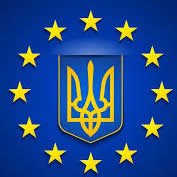Just before Poroshenko and Putin met in Minsk today, the so-called Boisto Group (named for the Finnish island where the group’s six American and seven Russian foreign policy experts met) released a 24-point conflict-resolution plan that is, I suppose, not entirely without merit. It seeks to establish an immediate and secure cease-fire, and to ensure that economic, ethno-cultural and humanitarian issues are resolved as amicably as possible. Admirably, it insists on the re-establishment of Ukrainian law-enforcement in the Donbas. Equally admirably, it at least recognizes that Crimea is still a problem, by not taking it off the table altogether.
But the plan’s fundamental flaw is that it isn’t, in fact, designed to resolve the conflict: it’s designed to freeze it.
The plan begins by insisting that the Donbas be completely demilitarized, including the withdrawal of all Ukrainian forces. While that can be a reasonable condition to end a civil conflict, it must inherently be a temporary measure: no sovereign state can permanently cede the right to move its own military around its own territory. But the Boisto plan would require exactly that. It does not envisage any political process that would allow Kiev to reassert full control over its territory. If implemented as written, the plan will turn the Donbas into another Transnistria — exactly what Moscow has been hoping to achieve, and exactly what Kiev has been fighting to avoid.
And therein lies perhaps the bigger problem with the plan: it fails to recognize that, whatever bones Russia and the West may have to pick with each other, this is first and foremost a conflict between Russia and Ukraine. Putin and Poroshenko certainly understand that: that’s why they’re meeting in Minsk. I have nothing but respect for the members of the Boisto Group, many of whom I know personally and some of whom I count as friends. But there was not one Ukrainian on the island when the Boisto Plan was drafted, and thus it is not entirely surprising that the plan mortgages Ukraine’s political future for the sake of allowing Russia and the West to get back to ‘business as usual.’
See this comment at Moscow-on-Thames.











